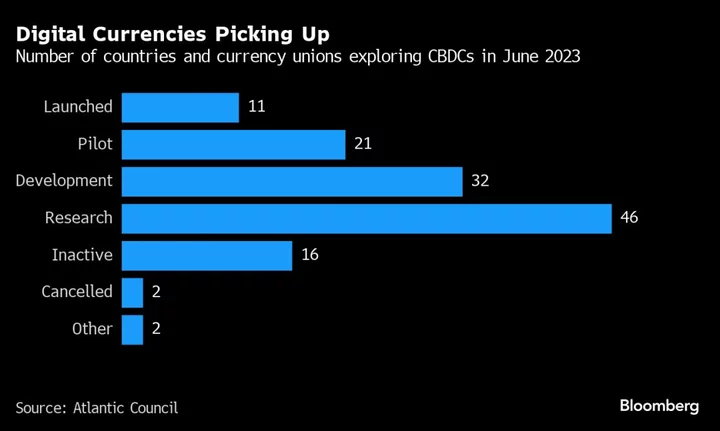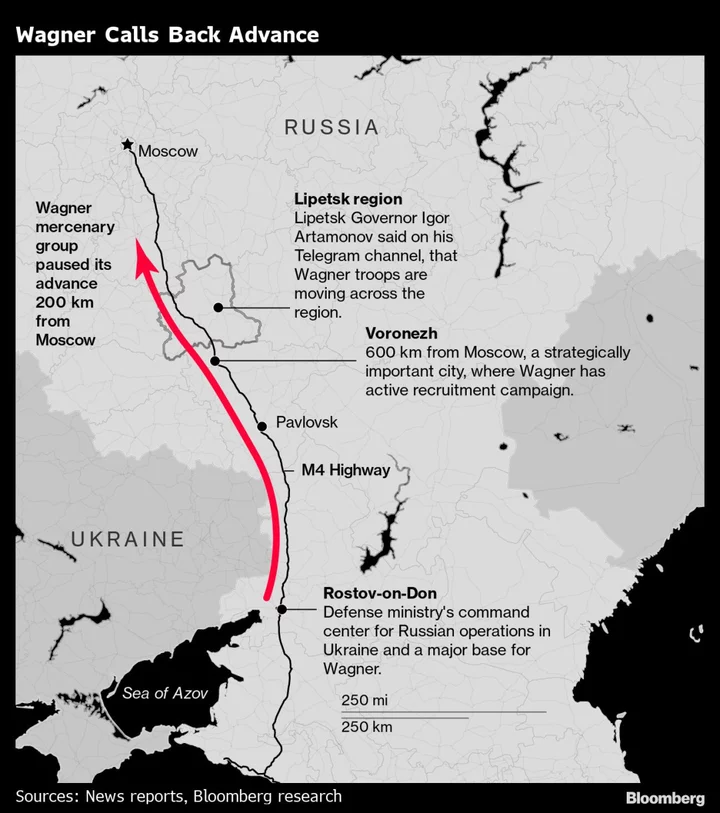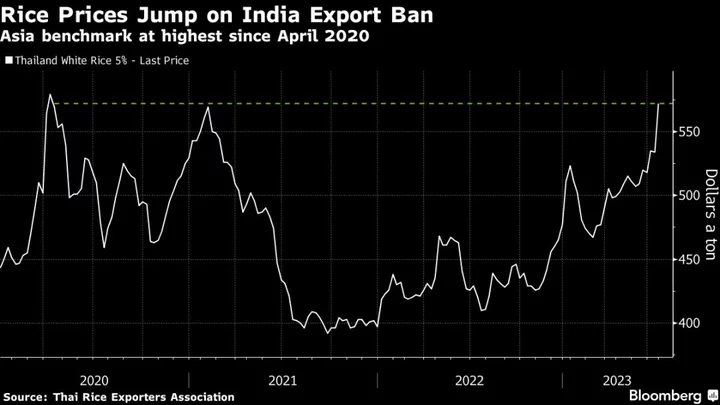The European Central Bank shifted to the next stage of its digital-euro project — preparing the ground to issue the currency in the coming years, though a final decision has yet to be taken.
The Governing Council gave the green light to move to a “preparation phase” that will initially last two years, the ECB said Wednesday in a statement. During that time, the ECB will complete its rulebook and select providers to develop a platform and the needed infrastructure.
“We need to prepare our currency for the future,” ECB President Christine Lagarde said. “We envisage a digital euro as a digital form of cash that can be used for all digital payments, free of charge, and that meets the highest privacy standards. It would coexist alongside physical cash, which will always be available, leaving no one behind.”
With central banks the world over looking to add a digital alternative to banknotes and coins, the ECB is far from alone in exploring virtual cash. Most of its global peers are looking into the idea, with more than half surveyed by the Bank for International Settlements conducting concrete experiments or working on a pilot.
The ECB started its project in 2021 and has since investigated various design features. While skepticism persists, there was little doubt that officials would press on. They list benefits including universal acceptance for payments across the 20-nation bloc and an absence of the volatility that’s dogged crypto-currencies.
The ECB said that embarking on the preparation phase “is not a decision on whether to issue a digital euro.”
In parallel to the ECB, the European Union is working on a framework that would provide the legal basis and regulate the key elements of the virtual money — while leaving the ultimate decision on whether to go ahead with it to the central bank.
Doubts about the idea remain. Late last month, a group of EU lawmakers urged to ECB to postpone its decision on the next phase, saying the added value for the general public “remains unclear” and that implementation is uncertain. Fabio Panetta, the ECB board member in charge of the work, countered that the next steps merely constitute more preparation, rather than a final verdict on the launch.
Preferences for cash vary within the euro area, with German consumers among the keenest on paying with notes and coins. Bundesbank President Joachim Nagel defended the project in an interview with Deutschlandfunk on Thursday, while cautioning that he expects the digital euro to only be ready for use in “about five years.”
--With assistance from Bastian Benrath.
(Updates with comment from Bundesbank president in last paragraph.)









